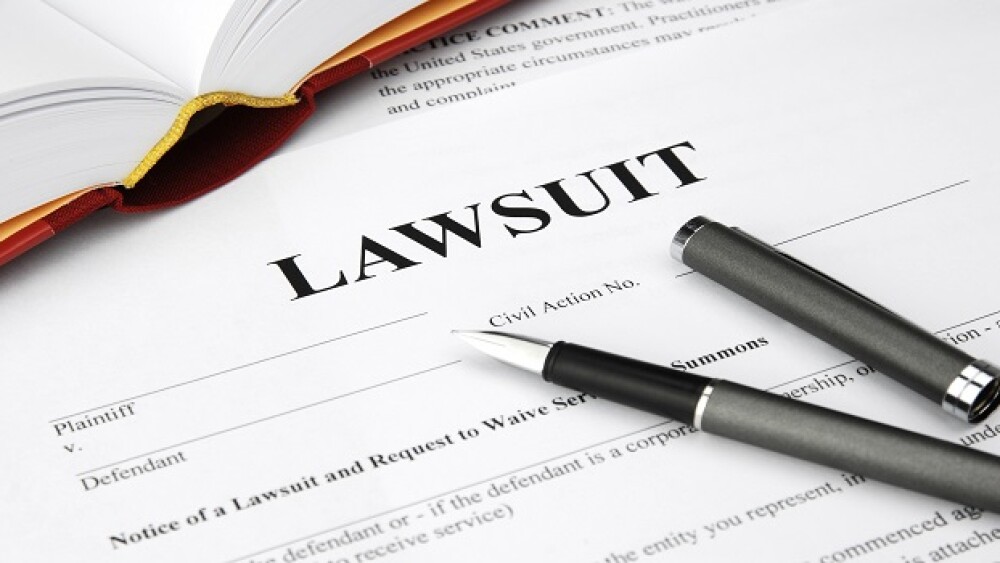Gilead Sciences filed a lawsuit against the United States government alleging the U.S. Centers for Disease Control and Prevention violated a contract that governed an HIV research collaboration between the company and government agency.
Gilead Sciences filed a lawsuit against the United States government alleging the U.S. Centers for Disease Control and Prevention (CDC) violated a contract that governed an HIV research collaboration between the company and government agency.
On Friday, Gilead alleged the CDC violated four Material Transfer Agreements (MTAs) and a Clinical Trial Agreement (CTA) that related to the use of antiretroviral agents for the prevention of HIV infection over a 15-year period. Specifically, the California-based company noted the research in question had to do with its prevention drug, Truvada for PrEP. Truvada is used to reduce the risk of HIV infection in individuals who are at higher risk for HIV. It has been shown to reduce the risk of new infection by up to 97% when taken consistently.
Gilead said the contracts it signed with the government provided the CDC with “significant quantities” of the antiretroviral for free for its own research. In turn, the government was supposed to notify the company of “any inventions, discoveries or ideas that resulted from the research.” Also, Gilead said in the case of the CTA, the CDC had promised not to seek patent protection in connection with any alleged inventions that came about from the use of the study drug in the trial. Gilead said the government did not live up to its end of the deal.
In 2006, Gilead said the U.S. Department of Health and Human Services “improperly filed for patent protection” without providing the required notification to Gilead. Over the course of the next eight years, Gilead said the CDC never notified the company of its patent applications despite entering into additional and separate collaboration agreements with the company. In 2015, Gilead said HHS was granted four patents relating to the use of the Gilead-provided medicine for pre-exposure prophylaxis (PrEP).
Last year, the government filed a lawsuit against Gilead for infringement of these patents, which the company claims are invalid and should not have been granted. HHS argued that Gilead refused a licensing deal despite “multiple attempts” to negotiate one, while Gilead argued the government’s 2015 patent for Truvada is invalid. In February, Gilead lost that argument when the Patent Trial and Appeals Board ruled against the company.
In its announcement of the legal action, Gilead’s complaint alleges that, as a result of the “multiple breaches of contract,” the company has incurred unnecessary attorneys’ fees and has “suffered reputational harm due to the government’s inflammatory and selective allegations asserted in the patent infringement lawsuit. Its complaint seeks a declaration of contract breach, as well as damages.”
As the lawsuit begins its journey through the courts, Gilead said it will continue to work with the CDC and other federal agencies on efforts to combat HIV, as well as COVID-19 and other epidemics.
“We remain firmly committed to our own efforts, and to supporting the government’s efforts, to substantially increase access to PrEP for people at risk for HIV through our historic donation of PrEP medication for uninsured individuals and through ongoing efforts to address the social and structural barriers to care,” Gilead said in a statement.
Gilead is a leader in the development of HIV treatments. With Truvada, Atripla and Stribild, Gilead Sciences has three of the top four best-selling HIV drugs on the market. In 2018, Gilead also saw approval of Biktarvy, a triple combination treatment of bictegravir and emtricitabine/tenofovir alafenamide for the treatment of HIV-1. Last year, Gilead announced it will annually donate 2.4 million doses of its HIV treatment Truvada for PrEP to the U.S. Centers for Disease Control and Prevention to provide treatment for uninsured Americans.





